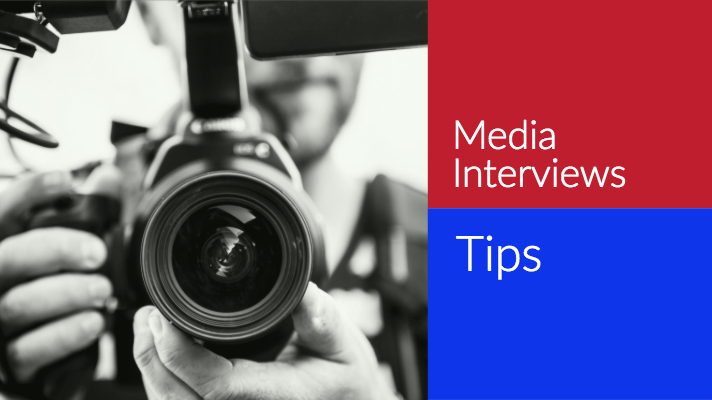Shining in the Spotlight
Getting free coverage (earned media) for your business with a media interview is every entrepreneur’s objective. A single interview can represent thousands of dollars (if not millions) in advertising and can create goodwill for your brand. But that can only happen if you are prepared. Take the time required to do your homework. Find out as much as you can about the reporter, their perspective, the publication or station they represent and the nature of the interview before it starts. Then all you need to do is shine. Below are some tips for managing the interview process.
Before the Interview
Respond Immediately
There are always people willing to be interviewed and news deadlines are often so short that there is little time for reporters to manage uncertain responses. If you are approached for an interview respond immediately.
Find out their deadline and let the reporter know if you are available as soon as you can; that means within hours at most, not days.
Journalists are often pressed for time. If you make a commitment to speak with them or send them information, make sure you keep it. If not, they are unlikely to trust you in the future.
It is also best to avoid playing favourites with reporters. Generally speaking, playing favourites means that you are doing someone else a disfavour and that can affect how they cover your issues in the future. Keep in mind the objective of media relations is to build trust.
Learn about the reporter
Take a look at the stories the reporter has written in the past. They are often available online through a quick search of their name. Do they do business exsposés or human interest stories? What kinds of stories do they seem to cover?
Follow their social media feeds. It may give you some insight into the way they think or what they value. Building rapport with reporters who cover stories in your area is a great way to get earned media.
Know what to expect
Will the interview be live or pre-recorded? Live interviews are an opportunity to tell your story, but you have to be confident. Recorded interviews can give you more leeway for mistakes, but they can also be edited to very short clips and your key messages can be lost.
Is anyone else being interviewed? Will your competition be sharing their perspective or potential customers? By knowing who else will be interviewed you have an opportunity to prepare more effectively.
What story is the reporter trying to tell? Although this may seem obvious, it’s always better to verify in advance.
Don’t expect to learn the questions that will be asked in advance. Most reporters would like a more natural exchange and may ask new questions based on the answers you give.
Where will the interview happen? If the meeting is at your office then who else may be present? Make sure that the background to the interview is one you want everyone to see.
Practice
Develop your key messages, the things you really want to say. Learn how to say them in different ways.
During the Interview
Tips for managing questions:
- EVERYTHING is on the record. If you say it, then expect it to be made public.
- Repeat important points, especially for sensitive or controversial issues.
- When dealing with a question you’d rather not handle at the moment, you should always address the question, but you don’t have to answer it. If you do answer, keep it short. In either case, move on quickly.
- You don’t have to answer a question the moment it is asked. Pause to collect your thoughts. A moment is a lot shorter than you think. It will look like you are giving the answer some thought.
- Try to avoid hypothetical questions. They make dramatic headlines, but don’t relay facts.
- Don’t speculate. Don’t bluff. If you don’t know, say so.
- Don’t be intimidated by pauses. An interviewing technique for getting additional commentary is simply to stay silent. People will often fill the silence.
Phrases that give you time to think:
- “Well, I’m not surprised you asked that question…”
- “I’m pleased you asked that question, let me take a minute to explain…”
- “This is a challenge we’re looking at and expect to have…”
Bridging phrases to get back to your message:
- “But perhaps an equally important issue here is…”
- “What I think you’re getting at is…”
- “That’s not in my field, but what I can say is…”
- “I don’t know…but I do believe…”
- “That’s because…”
- “As you know…”
Phrases for avoiding difficult questions:
- “That’s in the future. What I want to talk about now is…”
- “What I think you want to know is…”
- “Those were important factors, but…”
- “Too soon to tell…”
Media is a powerful tool. If you use it, it must be with the understanding that you are trying to get a message out to a broad audience, including those who may disagree with your perspective. Your job is to tell a good story. However, if you are unsure about the request, or if there is an obvious risk in doing the interview, you can always say no.
Related Articles:

